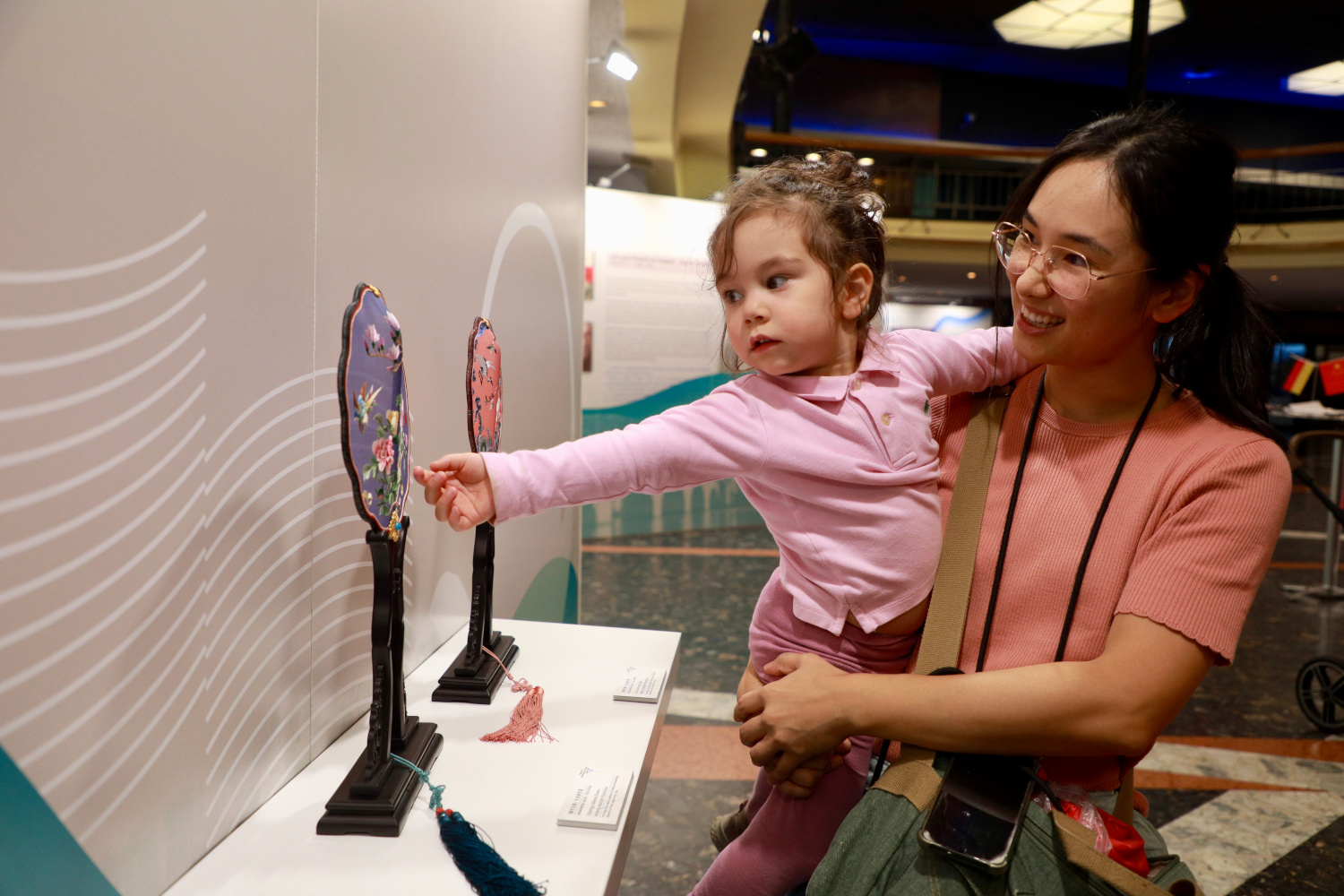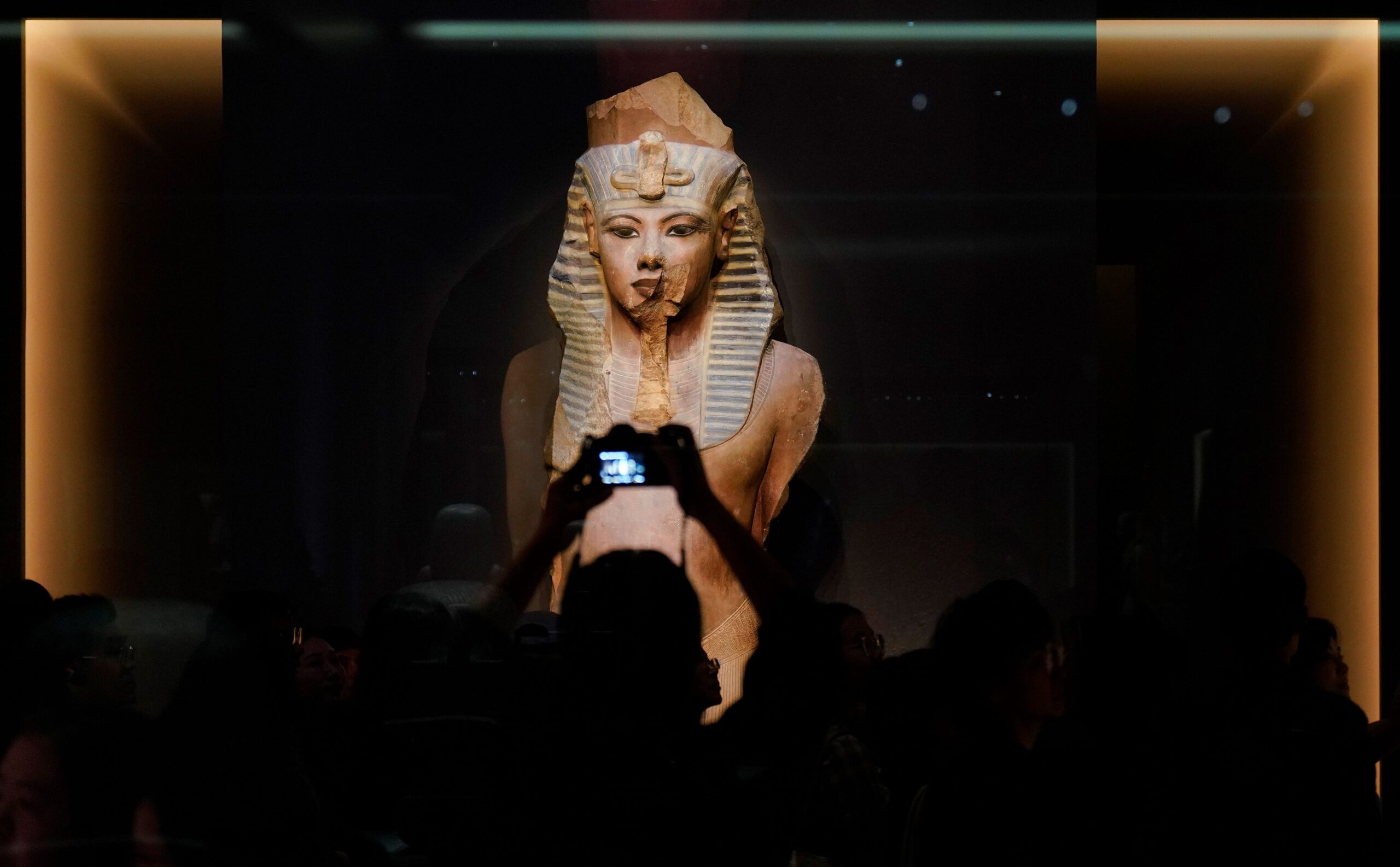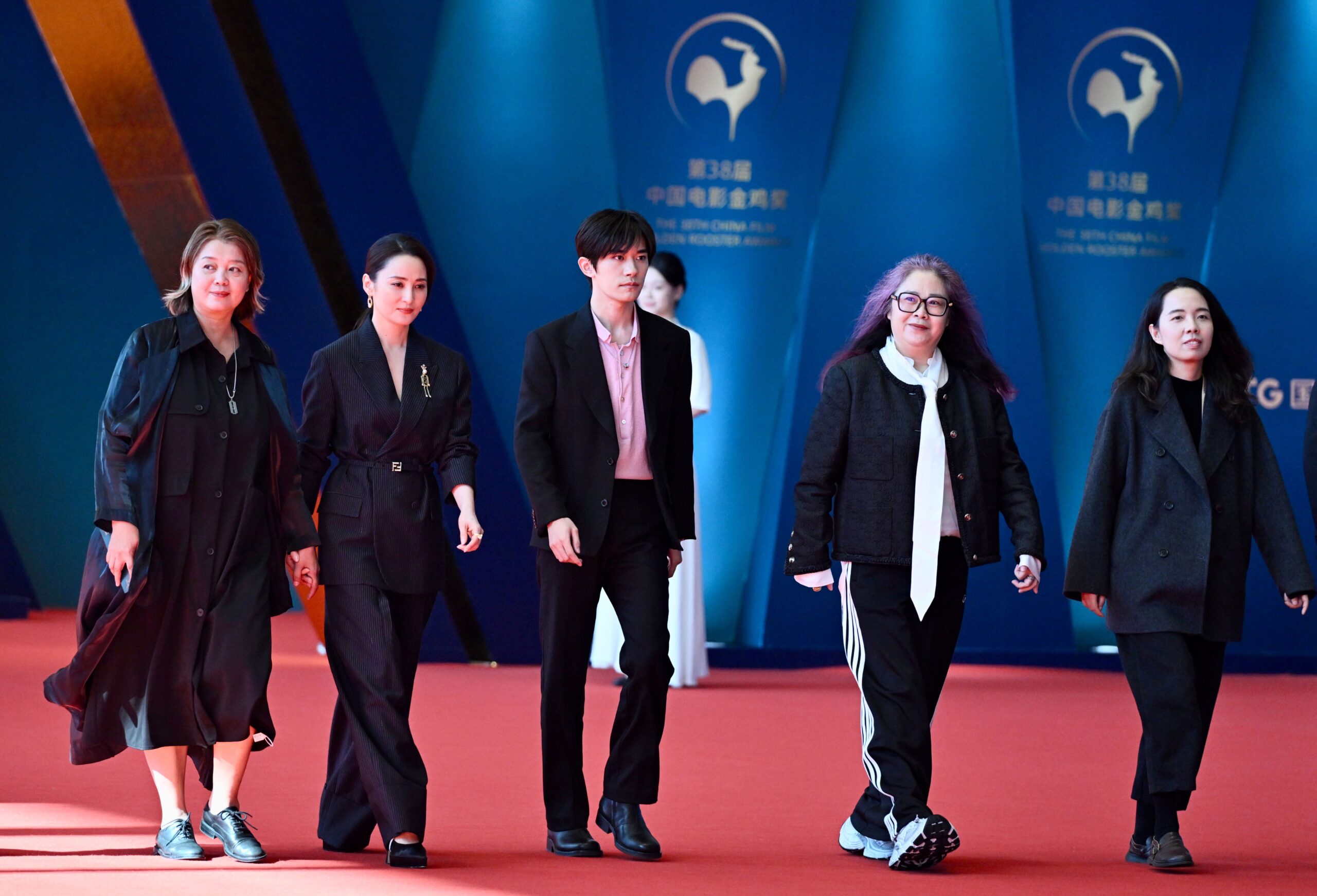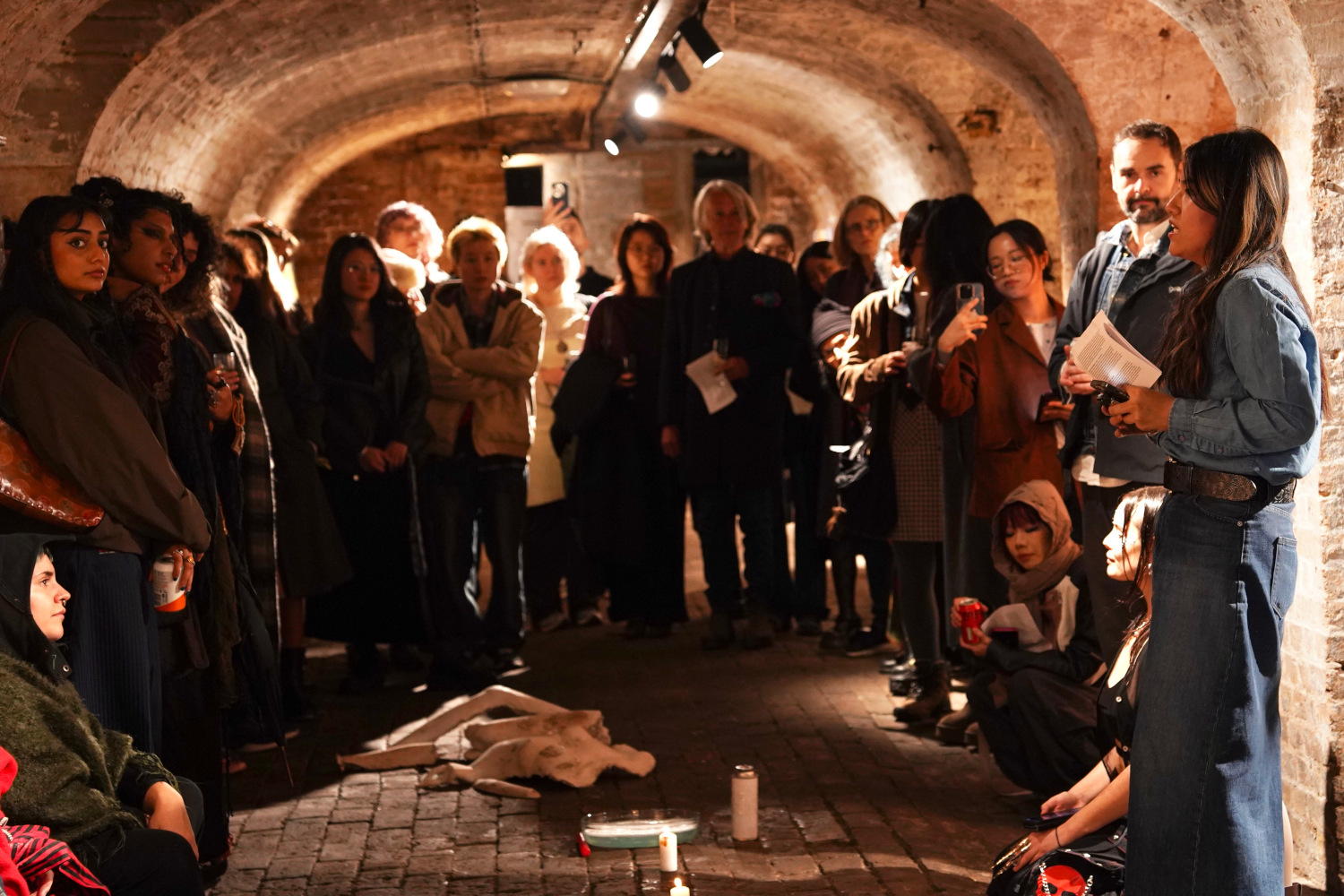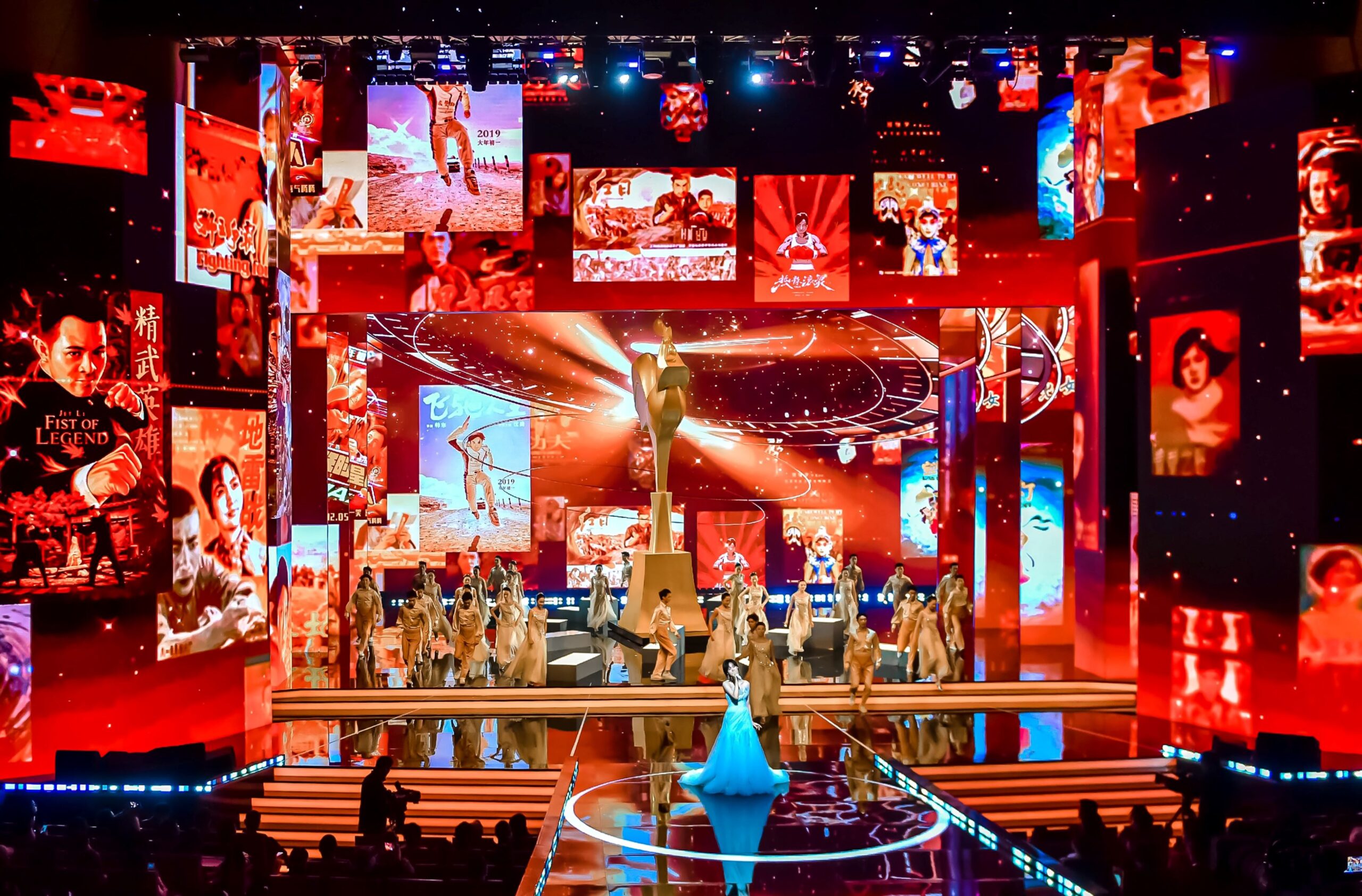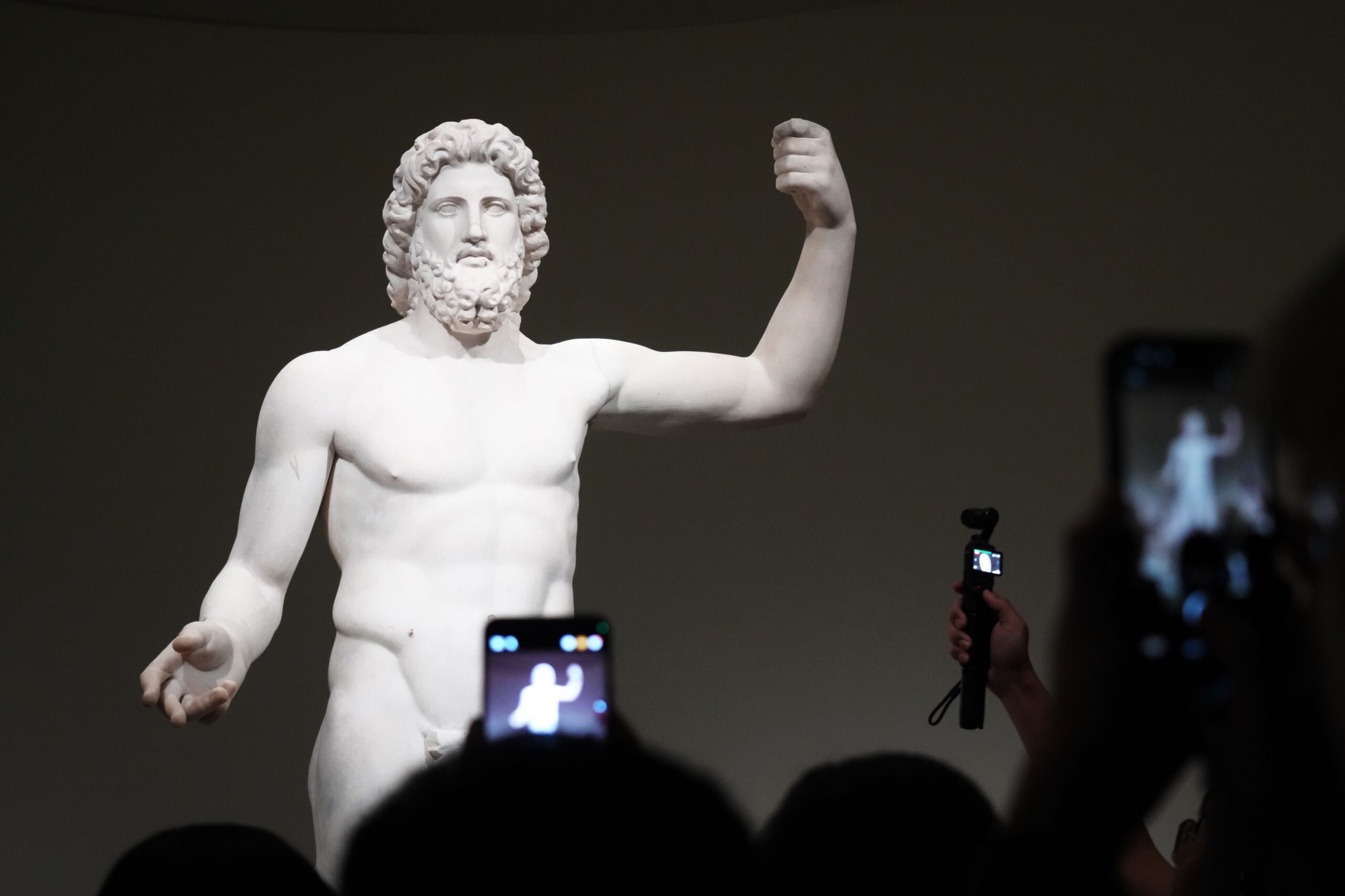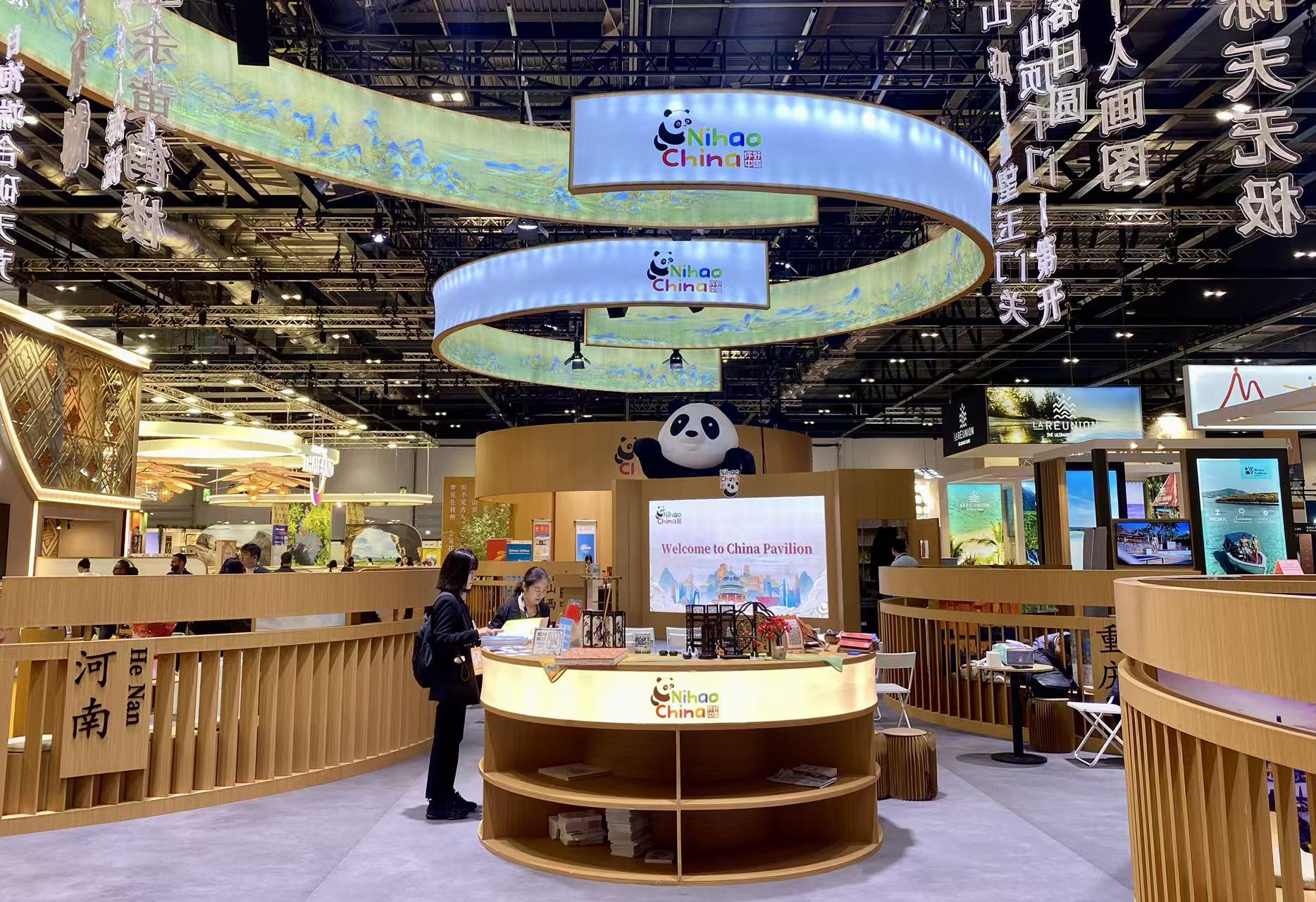Jiangsu Culture Festival Opens in Germany with concerts and events showcasing Chinese culture from the Jiangnan region.
A German proverb aptly states, “Mountains may not meet, but people must”.
This was proven true on September 18th when “An Encounter with Chinese Culture: Jiangsu Week of Chinese Folk Music” and the themed exhibition “The Grand Canal Meets Rhine River” opened at Stuttgart Liederhalle in Germany.
The festival brought traditional Chinese Jiangnan culture to Germany through, music, crafts, and exhibitions.
Together, they aimed to foster cultural dialogue and people-to-people exchanges between China and Germany.
The opening evening’s highlight was the “Forever Jiangnan” folk music concert.
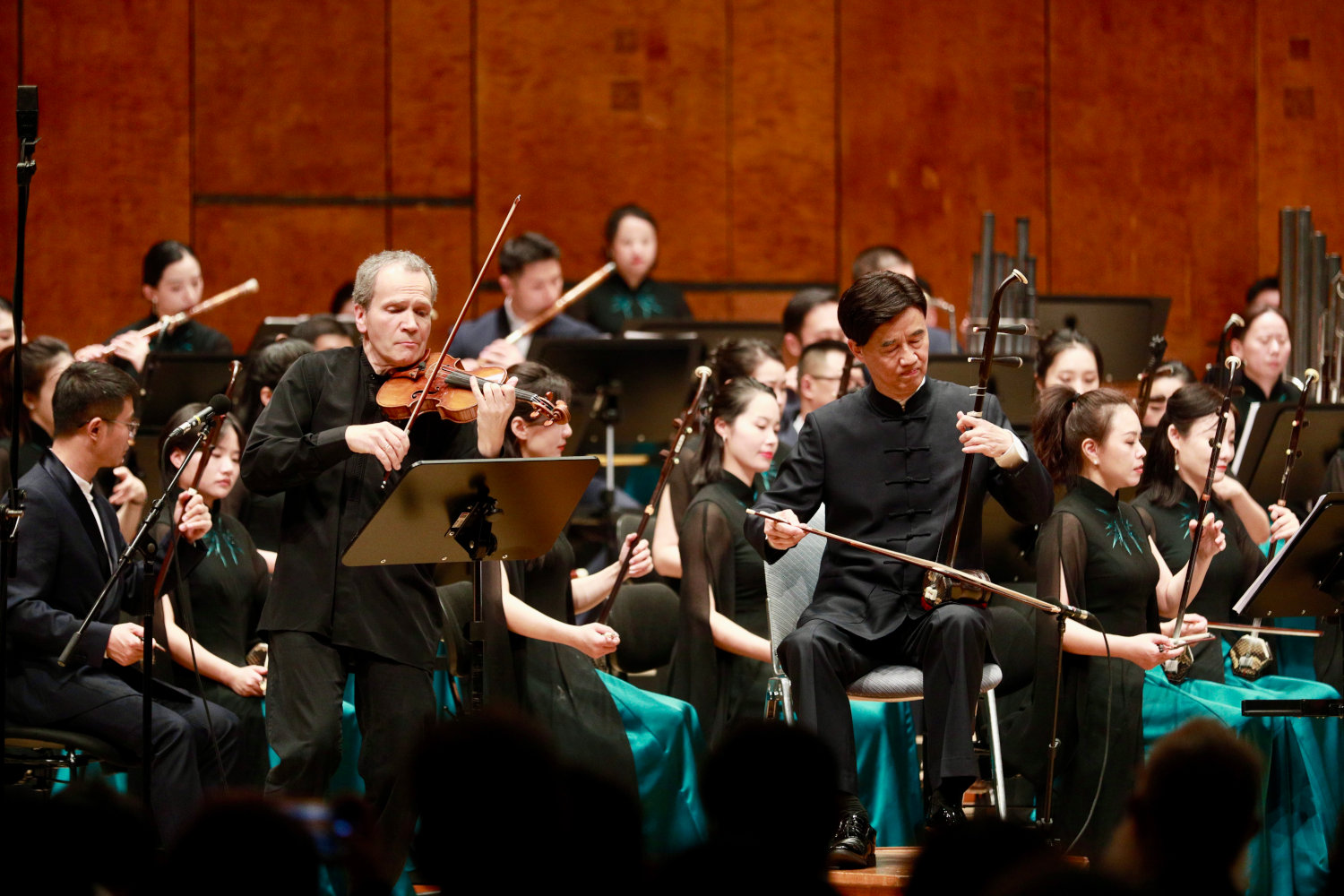
Jiangnan literally means ‘south of the river’. It refers to the land immediately south of the Yangtze River lower reaches. This includes major cities such as Shanghai, Hangzhou, Nanjing, Suzhou, and Wuxi. Much of Jiangsu province is in the Jiangnan region.
Historically, it was an important hub of ancient Chinese culture, tradition, and food. Now, that history has seen the region become the epitome of elegance and refined culture.
It commenced with the enchanting performance of “Beautiful Jiangnan”, a folk music ensemble by the Wuxi National Orchestra. Their smooth and lively melodies transported the attendees to the picturesque water towns of Jiangnan.
The national orchestra of the Jiangsu Performing Arts Group also performed several classic pieces. This included “National Style” and “Jasmine Flower”.
Performances were also given on the traditional Chinese guzheng, a stringed instrument that fills the air with elegantly plucked notes.
The highlight was arguably the joint Sino-German ensemble segment. German violinist Ulrich Edelmann from the Frankfurt Radio Symphony Orchestra and renowned Chinese erhu player Zhu Changyao together performed classic pieces such as “Liang Zhu” and Mozart’s “Serenade No. 13 for Stringsin G Major”.
Upon conclusion, thunderous applause filled the hall.
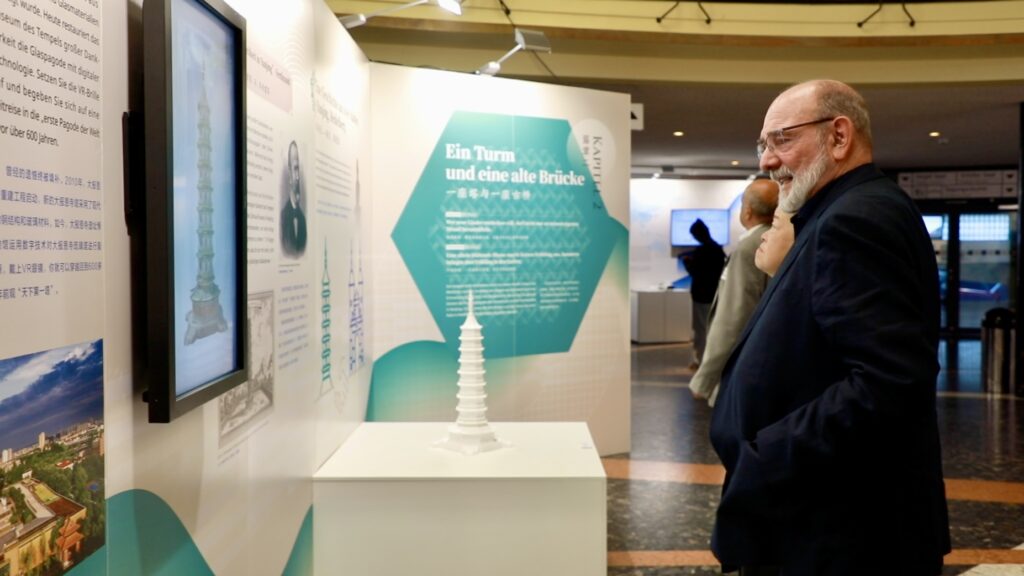
The themed exhibition “The Grand Canal Meets Rhine River” drew from connected Chinese-German heritage.
It used photographs, videos, 3D models, live demonstrations, and digital interactions among other formats to present five chapters. Each was themed around proverbs common to both cultures.
Together they aimed to tell stories of civilization exchanges and the deep bonds between the people of China and Germany.
For instance, the small city of Taicang in Jiangsu is known as the “Hometown of German Enterprises”. Since the settlement of the first German company Kern-Liebers in 1993, Taicang has become the hub for German enterprises in China. Taicang is now home to more than 387 German companies.
This fascinated many German visitors of the exhibition, unaware of the unique piece of German-Chinese connectivity.
The festival also provided an opportunity to try out traditional Chinese crafts and heritage from Jiangsu. There were booths featuring the erhu (a musical instrument), Wuxi fine embroidery, Huishan clay figurine making, Jintan paper cutting, and Yangzhou lacquerware.
Experts in these arts demonstrated their exquisite craftsmanship. While many visitors showed great interest and even tried their hand at these activities.
At the event, Mr. Christian Lorenz (Chairman of the German-Chinese Friendship Association of Stuttgart) was presented with a collection of books from the Symbols of Jiangsu series. This series of over 80 books published by Pheonix Publishing and Media Group highlights Jiangsu’s many cultural symbols.
As exemplified by the exchange between Chinese experts and visitors trying their hand at traditional crafts for the first time, “The Grand Canal Meets Rhine River” represents a cross-continental journey towards each other.
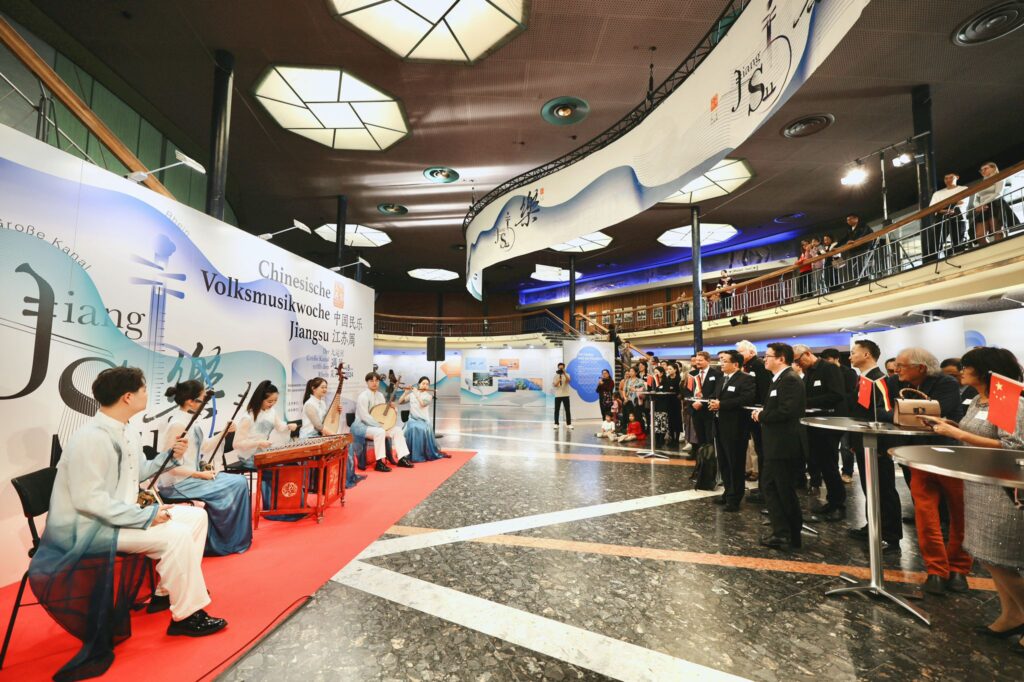
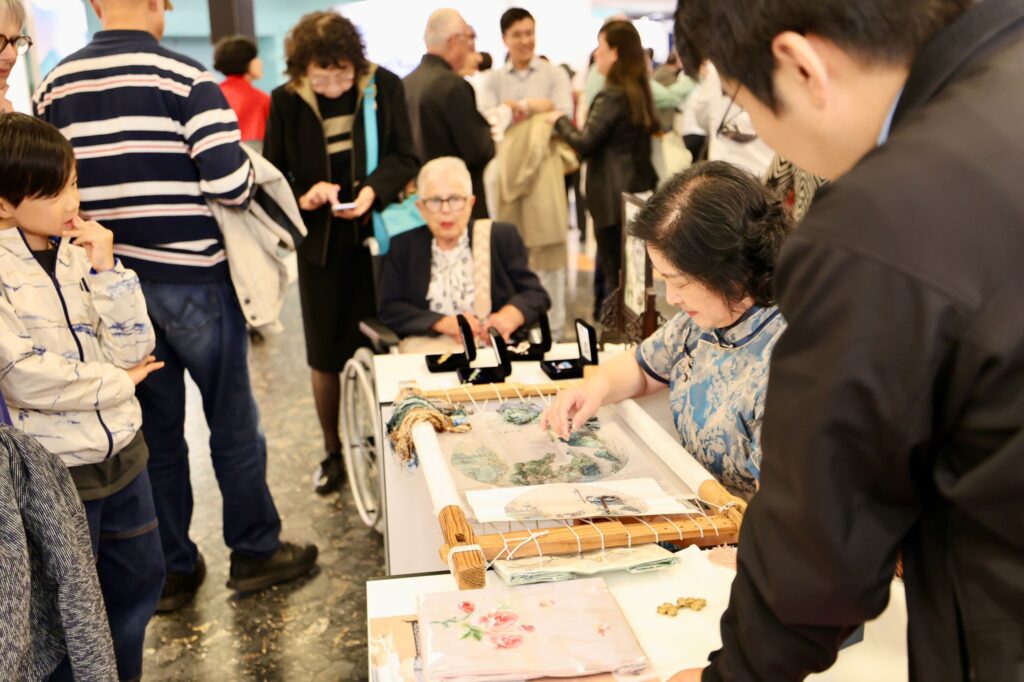
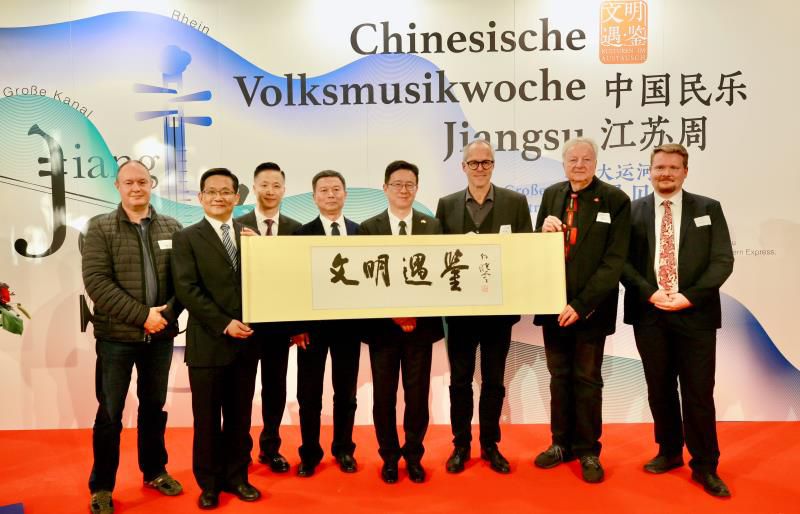
Originally published by Modern Express. Written by Lu Wei, Xiong Pingping, and Sun Lanlan. Photography by Liu Chang.
If you liked this article why not read: New Film Festival Brings Female-led Chinese Films to Scotland

